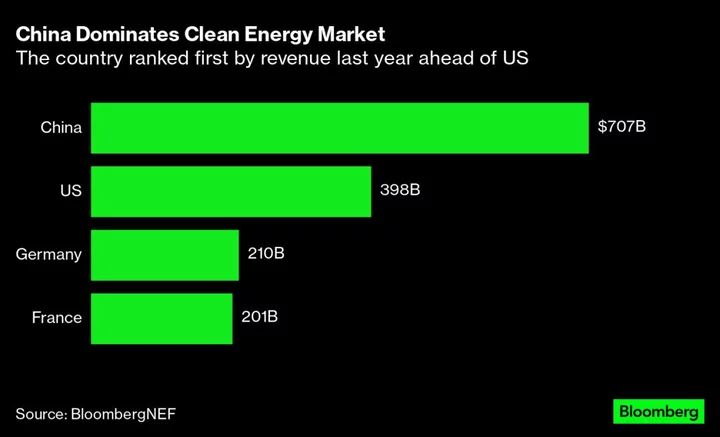
China Leaves Everyone Behind in Race for Renewables Income
The biggest US companies are badly trailing their Chinese counterparts when it comes to generating income from solar,
2023-09-04 07:59

Money and Politics Put World’s Biggest Climate Deal at Risk
When Indonesia agreed last year to clean up its energy system with an estimated $20 billion of help
2023-09-04 07:55
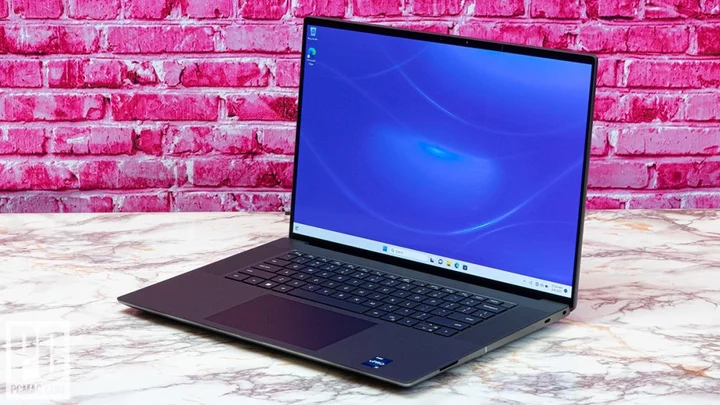
Dell Precision 5680 Review
While the Lenovo ThinkPad P16 Gen 1 is our most recent Editors' Choice honoree among
2023-09-04 07:28
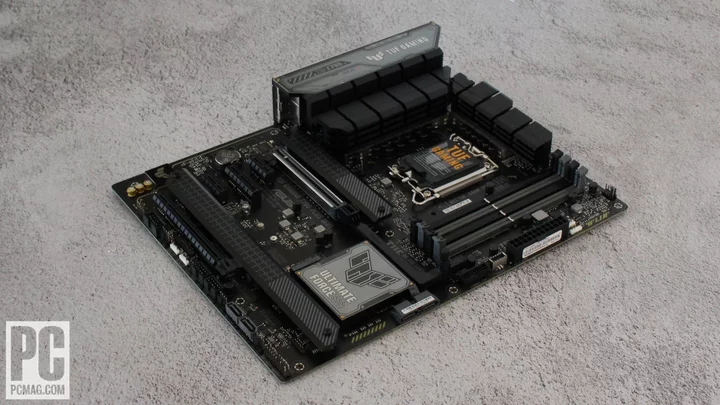
Asus TUF Gaming Z790-Plus Wi-Fi Review
The Asus TUF Gaming Z790-Plus Wi-Fi ($229.99) is an affordable Intel Z790 motherboard that promises
2023-09-04 07:24

HP E45c G5 DQHD Curved Monitor Review
The HP E45c G5 DQHD Curved Monitor ($1,099), a 45-inch business-centric ultrawide monitor, is a
2023-09-04 07:24

8K TVs: Not Dead Yet, But Pretty Close
BERLIN—Contrary to some industry expectations, the European Union’s energy-efficiency mandates have yet to unplug the
2023-09-04 07:23

Teacher suicide exposes parent bullying in S Korea
The tragedy has unleashed a wave of anger from primary school teachers across the country.
2023-09-04 07:17

Russian cyber-attacks ‘relentless’ as threat of WW3 grows, expert warns
Cyberattacks by the UK’s enemies are becoming “relentless” as we enter a “new era” of global conflict, an expert has warned. It comes after Russian hackers allegedly acquired top-secret security information on some of the country’s most sensitive military sites, including the HMNB Clyde nuclear submarine base on the west coast of Scotland and the Porton Down chemical weapon lab. The “potentially very damaging” attack last month by hacking group LockBit, which has known links to Russian nationals, saw thousands of pages of data leaked onto the dark web after private security firm Zaun was targeted, the Sunday Mirror newspaper reported. The company, which provides security fencing for sites related to the Ministry of Defence, said it had been the victim of a “sophisticated cyber attack”. Responding to the news, Kevin Curran, professor of cyber security at Ulster University, told the PA news agency that LockBit’s attack was “serious” as we approach a potential “World War Three” following Russia’s invasion of Ukraine. He said the raid was “likely” sponsored by the Russian state given the nature of its target and that cyber attacks by Britain’s enemies had become “relentless”. Professor Curran warned that we were unprepared for this new era as third-party companies, which hold data on our military infrastructure were not being properly regulated. He said: “You can’t just expect third-party suppliers to adhere to your rules. “There is always a risk when you have third-party suppliers and you do wonder if they adhere to industry best practice. “It is a worry because everything is online now – cybercrime is the biggest crime in the world. “Given the new era we are entering which is the brink of World War Three everything is serious. They are relentless with these attacks Professor Kevin Curran “They are relentless with these attacks. Their best way into our country is through our cyber-security. This is the nation at risk. “In this case, given the target, my money would be on this being state-sponsored.” It comes after Labour MP Kevan Jones, who sits on the Commons Defence Select Committee, urged the Government to explain why Zaun’s computer systems were “so vulnerable”, warning: “This is potentially very damaging to the security of some of our most sensitive sites.” “Any information which gives security arrangements to potential enemies is of huge concern,” he added. The government has so far declined to respond to concerns, with a spokesperson saying: “We do not comment on security matters.” In a statement on its website published on Friday, Zaun said it had taken “all reasonable measures to mitigate any attacks on our systems” and explained that they had referred the matter to the National Cyber Security Centre (NCSC). It explained that the breach occurred through a “rogue Windows 7 PC” that was running software for one of their manufacturing machines but that the network was “otherwise up to date”. It said: “At the time of the attack, we believed that our cyber-security software had thwarted any transfer of data. “However, we can now confirm that during the attack LockBit managed to download some data, possibly limited to the vulnerable PC but with a risk that some data on the server was accessed. “It is believed that this is 10 GB of data, 0.74 per cent of our stored data. “It is well known that Zaun is a specialist in high-security perimeter fencing and has supplied fencing to many high-profile sites. “Sites where our products are used include prisons, military bases and utilities.” Zaun has been approached for further comment. Read More Ukraine-Russia war – live: Putin suffering ‘mounting casualties’ and forced to appeal for foreign fighters Russia attacks a Ukrainian port before key grain deal talks between Putin and Turkey's president Russians press Ukraine in the northeast to distract from more important battles in counteroffensive Ukraine ‘targets critical bridge’ built by Putin as counteroffensive ‘breaks through on southern front’ Charity boss speaks out over ‘traumatic’ encounter with royal aide Ukraine war’s heaviest fight rages in east - follow live
2023-09-04 01:48

Madrid residents told to stay at home as torrential rain sweeps across Spain
MADRID Madrid's mayor on Sunday advised all residents to stay at home as the capital braced itself for
2023-09-04 01:28

Biden surveys storm damage in Florida, without DeSantis
By Jeff Mason LIVE OAK, Florida (Reuters) -President Joe Biden traveled to Florida on Saturday to survey the destruction from
2023-09-03 21:46
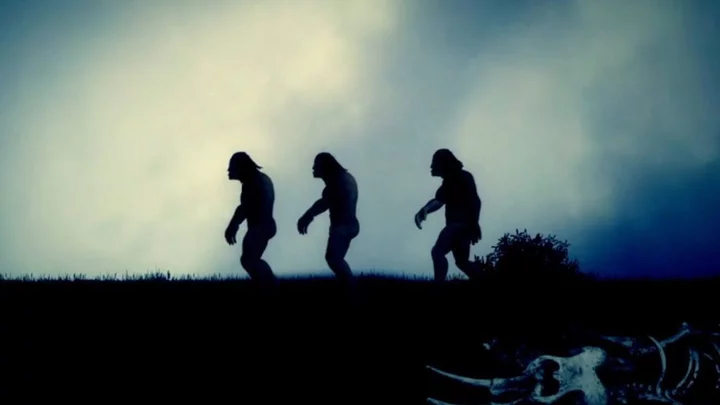
The terrifying time our early ancestors almost became extinct
New research has shown that our early ancestors almost went extinct some 900,000 years ago. Using a new method called FitCoal (fast infinitesimal time coalescent process), researchers analysed the likelihood of present-day genome sequences to project current human genomic variation backwards in time. They applied the technique to the genomes of 3,154 people from 10 African and 40 non-African populations, and found a massive crash in genetic diversity during the transition between the early and middle Pleistocene. “Results showed that human ancestors went through a severe population bottleneck with about 1,280 breeding individuals between around 930,000 and 813,000 years ago,” the study authors wrote in the journal Science. “The bottleneck lasted for about 117,000 years and brought human ancestors close to extinction,” they say. Wiping out roughly 98.7 percent of the ancestral human population, “the bottleneck could also have increased the inbreeding level of our ancestors, thus contributing to the 65.85 percent loss in present-day human genetic diversity,” explained the researchers. This probably happened because of changes in the global climate as short-term glaciations became longer-lasting, triggering a drop in ocean temperatures, prolonged drought, and the loss of large numbers of species that humans might have relied on for food. Then, around 813,000 years ago, populations finally recovered, with a 20-fold increase in numbers because of fire combined with the return of warmer temperatures, researchers reckon. What a near miss, eh? Sign up to our free Indy100 weekly newsletter Have your say in our news democracy. Click the upvote icon at the top of the page to help raise this article through the indy100 rankings.
2023-09-03 19:22
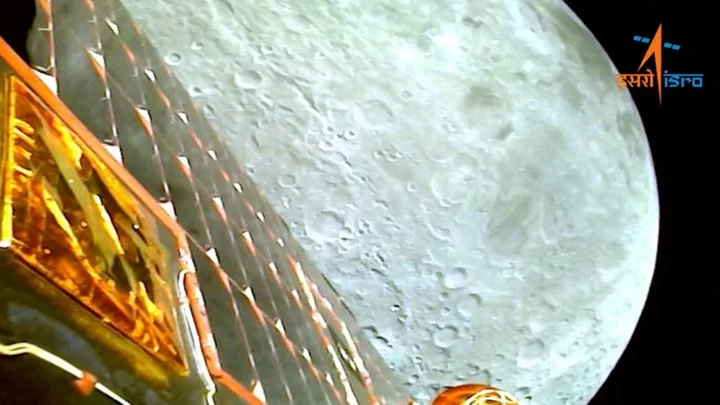
Mission accomplished, India puts moon rover to 'sleep'
By Arpan Chaturvedi NEW DELHI India switched off its moon rover, the first craft to reach the lunar
2023-09-03 16:45
